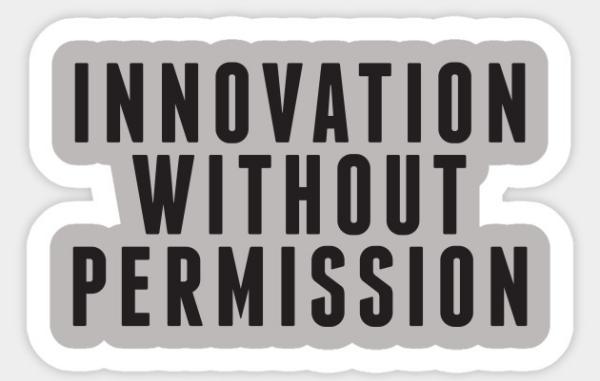Adversarial interoperability. Of course.
What is, EXACTLY, that makes Facebook “hard to replace”?

What are network effects, again?
Network effects are what makes Facebook so hard to replace. Quoting Cory Doctorow:
“Today, once everyone you want to talk to is on Facebook, you can’t be convinced to use another, superior service, because all the people you’d use that service to talk to are still on Facebook. And of course, those people also can’t leave Facebook, because you’re still there."
In the same piece, Doctorow tells the history of the Usenet “alt.” hierarchy to explain that the solution is to reinstate “adversarial interoperability”. And I am happy for it, because it is the same point I have been making for years.
Usenet? What’s Usenet?
Usenet was a decentralized, topic-based discussion-board system that predated the World Wide Web.
Creation of a new Usenet newsgroup had to be approved by a so-called “backbone cabal”. For reasons explained by Doctorow, that “cabal” did not allow creation of newsgroups on “controversial” topics, e.g. sexuality or recreational drugs.
In 1987, this led to the creation of a whole new, top-level category in the Usenet hierarchy, called “alt.” that is “alternative” or, as someone quipped, ““Anarchists, Lunatics, and Terrorists”. That category could contain discussion on any topics, but, not being “cabal-approved”, was not accessible from the Usenet software clients existing in 1987.
Unaccessible newsgroup? No problem.
In 1987, the fact that alt. newsgroups were not accessible by existing software did not matter. Because it was both technically easy and legal to write new software that could access both the traditional newsgroups, and the “alt.” ones. And port that software to any version of any operating system. Always without any permission or cooperation from the “cabal”. This is wy, eventually, “the alt. hierarchy became the most popular part of Usenet”, but without any needs for the traditional part to be abandoned, or for users to use two programs for the same task, or follow only one of the two hierarchies.
Thanks, adversarial interoperability!

The Usenet alt. hierarchy is a perfect example of “adversarial interoperability,” in which new services can be plugged into existing ones, without permission or cooperation from the operators of the dominant service.
If real adversarial interoperability were restored, concludes Doctorow, people could fetch all their Facebook notifications, or post to Facebook, from other social networks, without being spied on by Facebook.
People could again, that is, move to new services and service providers “without having to convince everyone to come with you”. Or being forced to “maintain many different accounts that reach many different groups of contacts”.
But this is exactly the point I made when I wrote that the only thing to “regulate” in Facebook & C is this. Thanks Cory Doctorow, for a great explanation of why it a would be nothing new, just a return to a saner era, and an extremely easy one, as far as software development is concerned.
Who writes this, why, and how to help
I am Marco Fioretti, tech writer and aspiring polymath doing human-digital research and popularization.
I do it because YOUR civil rights and the quality of YOUR life depend every year more on how software is used AROUND you.
To this end, I have already shared more than a million words on this blog, without any paywall or user tracking, and am sharing the next million through a newsletter, also without any paywall.
The more direct support I get, the more I can continue to inform for free parents, teachers, decision makers, and everybody else who should know more stuff like this. You can support me with paid subscriptions to my newsletter, donations via PayPal (mfioretti@nexaima.net) or LiberaPay, or in any of the other ways listed here.THANKS for your support!